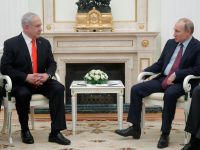Indian Prime Minister Atal Behari Vajpayee was facing a potentially damaging debate Wednesday in parliament over the alleged involvement of three key ministers in the razing of a mosque in 1992.
Vajpayee, 75, who heads a coalition government, will face a major embarrassment if some of its allies abstain during a censure motion vote expected Thursday, political analysts said.
The crucial debate was scheduled to start Wednesday at 12:30 pm (0700 GMT) and the premier could address the lower house of parliament later in the day or Thursday.
On Tuesday, the government and opposition had reached an agreement to discuss the Babri mosque issue, breaking a week-long impasse in which parliamentary proceedings were repeatedly interrupted by opposition demands that three federal ministers resign.
Opposition lawmakers had also demanded that Vajpayee explain some remarks he made last week regarding the construction of a Hindu temple over the razed mosque in the northern town of Ayodhya.
"The opposition is united in its demand that the ministers resign," a senior leader from India's main communist party, Somnath Chatterjee, told AFP Wednesday, explaining that all opposition parties across party lines would be voting against the government.
Since the Vajpayee coalition has a majority in the lower house, there was no immediate danger to the government, political analysts said.
Several key parties that make up the ruling coalition were reported to be upset with the statement made by Vajpayee that the temple campaign was an "unfinished" national task.
A meeting of the ruling coalition on Sunday reportedly assuaged some of the upset allies but a key regional coalition partner, the Telegu Desam Party, did not commit itself to voting for the Vajpayee government when asked on Wednesday.
"Our strategy is very simple," Yerran Naidu, the leader of the TDP parliamentary party, told AFP.
"We will decide after the debate when the voting takes place," he said.
The reason for the TDP's position was obvious. It has a large Muslim constituency in its home state of Andhra Pradesh, in southern India.
Several other coalition partners like the regional DMK in the south and the Trinamool Congress in the east too, have sizeable Muslim support on which they are dependent.
Political analysts were of the view that this was just a way for the coalition parties to maintain pressure on the Vajpayee government.
"They will not pull down the government, no one wants elections now," analyst B.G. Verghese said.
But another expert said that should the allies refrain from voting for the government it will expose fissures in the ruling coalition which could prove damaging in the future.
"If the TDP which is the largest party supporting Vajpayee abstains from voting then it could have an impact on the stability of the coalition in the future," Mahesh Rangarajan said.
According to political analysts, Vajpayee's statement last week was prompted by pressures from within his BJP party.
As the debate in parliament was about to start, there were rumours Wednesday that Home minister Lal Krishna Advani, the number two in the Indian government, had threatened to resign due to lack of support from Vajpayee when the opposition MPs were demanding that he quit.
One theory was that hardline Hindu groups perceive Vajpayee as "soft" on fundamental issues and want Advani to be prime minister.
Advani is one of the three ministers who allegedly incited Hindu zealots to destroy the 16th century Babri mosque eight years ago.
While stating that the temple campaign was an "unfinished" national task, Vajpayee could have been "trying to appease the hardline fundamentalist groups," said analyst Pran Chopra -- NEW DELHI (AFP)
© 2000 Al Bawaba (www.albawaba.com)







